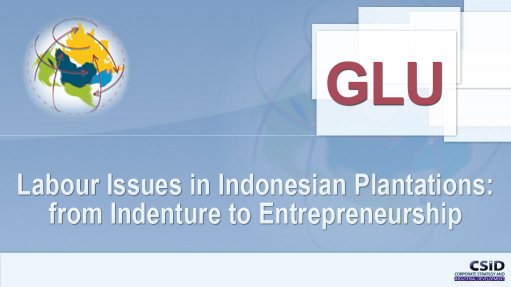
This article documents the labor issues in Indonesian plantations focusing on how changes in agrarian capitalism and state regulation have affected plantation workers. Plantation-based capitalism in Indonesia dates back to the 1860s, when European and American companies opened up the province of North Sumatra, mainly in order to produce tobacco, rubber and palm oil. This system continued long into the post-colonial period, alongside an expansion of the plantation system elsewhere from the 1960s. The 1980s saw a boom in large private estates, especially oil palm plantations, which also spread to other Indonesian islands where forested land was available. Big oil palm plantations now cover more than five million hectares. Each production unit consists of approximately 20 000 to 30 000 hectares; harvesting, the main technical operation, currently requires between two and four thousand permanent laborers per unit.
Download the full report above.
Written by Stéphanie Barral, a French junior researcher in sociology at INRA. Her fields of interest are land and labour markets, agricultural policies and their consequences on the evolution of agriculture, in Europe or in post-colonial societies.
Published by Global Labour Column and edited by CSID at Wits University.